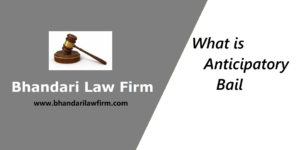Arbitration Law In India Arbitration Expert Lawyer in Chandigarh Punjab Haryana
In the words of Abraham Lincoln, Arbitration Expert Lawyer in Chandigarh Punjab Haryana
“Discourage litigation persuade your neighbours to compromise, whenever you can point out to them how the nominal winner is often a real loser, in fees, expenses, waste of time…”
Previously, in India there existed no rights and laws because the people were uneducated; however, with passing time with evolution and civilization, the disputes and their nature became complex. To solve such problems a third neutral and trustworthy person could be hired to resolve the dispute in hand. The idea or nature of arbitration is not new in our country and is similar to that of the ‘village panchayats’ in ancient Indian, wherein all disputes were brought in front of the panchas for redressal.
This same principle is applied and implemented in today’s era as the burden on the courts of law intensifies and the backlog increases. With the new culture and concepts revolving globalization and commercial market is brought in and increasing, disputes are also emerging out of contracts and agreement undersigned between the parties. In these cases, a mutually decided entity to dissolve the dispute legally is hired and assigned, who is popularly known as an Arbitrator. In these cases, there is no requirement to take the cumbersome and tiring path of litigation by approaching the courts and waiting for their cases to get taken up for hearing. It is basically a type of dispute resolution mechanism where in an impartial third party gives his/her decision after hearing both the parties to the dispute in hand
(Click Here To Know About Our Corporate Litigation)
The Arbitration and Conciliation Act, 1996 is a legislation that is enacted in India to provide for the laws governing arbitration procedures in our country.
The nature of this act is consolidating and amending and not exhaustive. It is way advanced and inclusive than the scope covered by the 1940 Act. It provides for the concept of domestic Arbitration and the enforcement of foreign arbitral awards. Arbitration Expert Lawyer in Chandigarh Punjab Haryana
The disputes that are not arbitrable favourably and those that fall outside the categories of arbitrable disputes as held by the Supreme Court in the case of Booz Allen and Hamilton Inc V. SBI Home Finance Ltd., Civil Appeal Number 5440 of 2002. They are: Arbitration Expert Lawyer in Chandigarh Punjab Haryana
- criminal offences
- guardianship matters
- insolvency and winding up proceedings
- matters of probate, letters of administration, succession certificate etc
- eviction proceedings
- patents, trademarks, copyright
- Anti Trust/ competition laws
- Bribery/Corruption Laws
- Fraud
The Section 2 (1) (a) of the Acts enshrines that ’arbitration’ means any arbitration whether or not administered by permanent arbitral institution”. This is same as the meaning under Article 2 (a) of the Model Law of UNCITRAL.
The most important laws provided under this Act: Arbitration Expert Lawyer in Chandigarh Punjab Haryana
The arbitration agreement if in the form of electronic means is treated as same as the valid arbitration agreement in writing. The appointment of Arbitrators is usually made by the Supreme Court or High Courts. In case of an arise of an international arbitration, the concerned court is the High Court which has original jurisdiction. An amendment made introduced a new provision that for the arbitral tribunal to pass its award within 12 months and that may be extended by 6 months but there will be certain reasonable restriction as under Section 29A of the Act. This allows to complete the arbitration proceedings within 6 months with the desire of the parties speedily as by Section 29B.
As per Section 34 of the Act an arbitral award might be put aside if it is found contrary to ‘public policy’. There must be an application given by the aggrieved party within 3 months from the date of award made by the tribunal and received by it. If sufficient cause is given for the delay of making such application, a further period of 30 days after the expiry of 3 months will be given by the tribunal as under the proviso of section 34(3).
In the landmark Supreme Court case of Bharat Aluminium Co. v. Kaiser Technical Services Inc., (2012) 9 SCC 552; popularly known as the BALCO case wherein there was a limitation on Indian courts from providing interim relief and helping to collect evidence in the case of International Commercial Arbitration. Theselacunae have now been settled with the applicability of section 9 and section 27 to International commercial arbitration also. The revision of the meaning of “courts” to refer to a High Court on account of International Commercial Arbitration, the aggrieved parties will now need not approach by the lower courts to look forward for relief.
The various advantages of arbitration over litigation: Arbitration Expert Lawyer in Chandigarh Punjab Haryana
- It is speedier and more cost effective
- Hearings are not public. Only the parties in dispute receive copies of the arbitral award.
- The parties can choose their own arbitrators.
- The arbitrators are competent and have expertise, thus also fair.
- The decision of the arbitral tribunal is final and binding on the parties in dispute.
- The place of arbitration can be decided by both parties with mutual consent.
Finally, the conditions when the award can be set aside:
- When the party is not competent to take care of his own interests and also not being represented properly, in such a case award fails to have its binding effect
- Ifclauses in the contract is invalid
- Notice should be given to the parties, if any ex-parte award given by the arbitrator will be considered as invalid and to be set aside
- The arbitrator cannot exceed their jurisdiction
- Section 34(2) (a) (v) also provides that the composition of the tribunal can be challenged and award can be set aside. If the composition is not accordance with the agreement, then the procedure followed in the proceedings cannot be valid.
Author: This article was written by Richaa Mukhopadhyay, B.A. LLB(Hons), CS(executive), ALSK, ICSI, student of Amity Law School, Amity University, Kolkata.
Note: For any further information or any query you may contact us on 9855677966 or via email info@bhandarilawfirm.com



